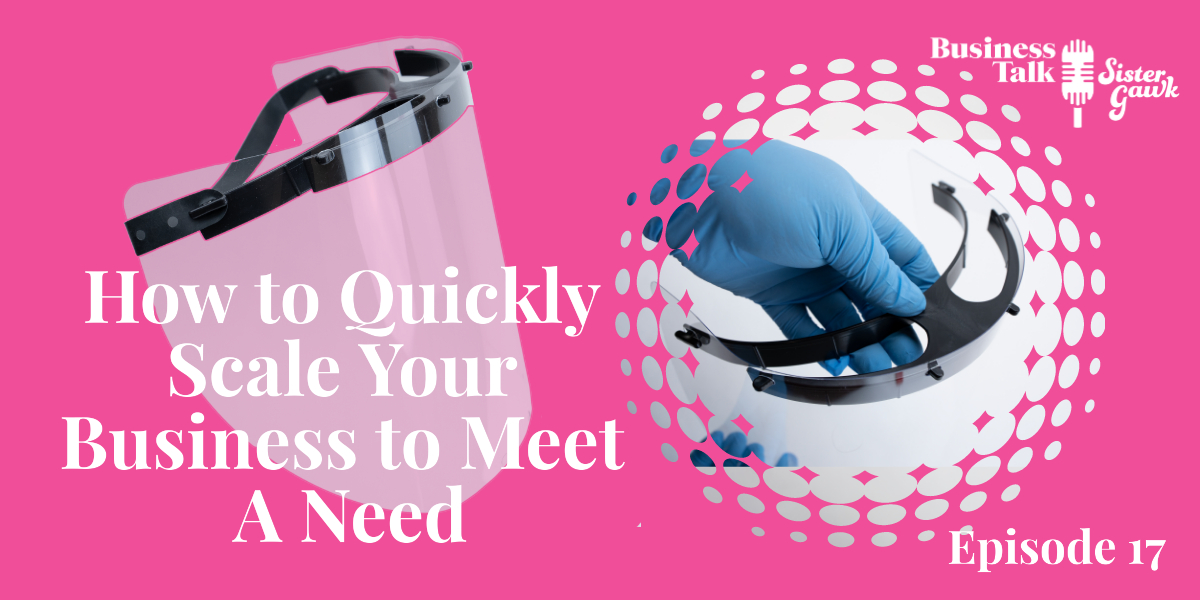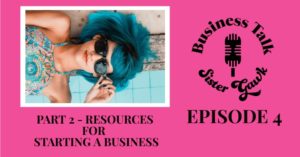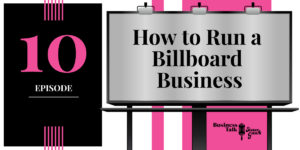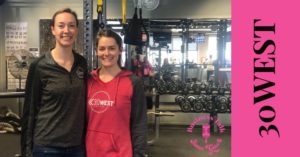In this episode, we get to talk with Evan Dammar about his PPE business focusing on manufacturing face shields to meet the rising need of health care workers and small businesses across America. From navigating the crazy demand due to COVID-19, to helping the local community through charitable giving, Evan’s business philosophy and personal journey is such a great listen.
Bekkah: I am so excited about this! I’ve known Evan for quite a long time. Since college. We’ve had some pretty great adventures together. Today he’s going to talk with us about how he quickly scaled a business to meet a need around COVID-19. We’re super excited to have him here. The first question we have for you, Evan, is what is your business?
Evan: Our business is focused around manufacturing face shields and sourcing personal protective equipment for healthcare and other professionals amidst the COVID-19 crisis. We primarily focus on face shields like I mentioned but we’re working on a few other pieces of PPE. Mainly face masks if we can find them and where we can find them. That has been our primary product so far.
How Does Someone Make & Manufacture Face Shields As a Business?
Bekkah: Awesome! Tell us how did you start doing this? What led you to this idea and what background did you have before you thought, “This is going to be something we can do.”?
Evan: This is one of the first businesses that I didn’t walk in with a really defined vision or plan but rather was introduced to the opportunity and took advantage of the opportunity, trying to build something out of it. We had just gotten out of a real estate business. We just sold a rental property and had some cash available at the time. The COVID-19 pandemic hit. My dad came to me and more or less told me he had started a manufacturing pipeline for the top band of these shields. He was working on another business with a friend of his making face shields for some large, corporate American clients that were donating these materials to hospitals.
They were manufacturing some of the components. He came to me and said, “Hey, can you sell these headbands?” I was like, “Why would I sell just headbands? That doesn’t make any sense.” I dug in and didn’t think much of it for a little bit. Then got in contact with one of my previous historical friends who’s actually in the medical supply business. I really started to get a picture of what was going on here. The scale and the scope of the crisis he explained to me. He works in medical sourcing and asset tracking globally. These hospitals are absolutely desperate to get PPE.
The Current State of PPE Demand In America
There is insane price gouging and what essentially amounts to drug dealing going on with protective equipment right now. He’s doing much larger deals than we could ever imagine. With much larger organizations and much larger healthcare systems than we could ever engage with. Just by the fact that we’re not FDA approved right now. He is doing deals in which he is acquiring upwards of 10 million N-95 masks, 10 million surgical masks, 10 million gowns. There are multiple billion dollars of transactions happening through escrow accounts across countries. A really interesting scenario that’s out there in the world today. Really what it amounted to is that China is stopping PPE from getting to the United States in a lot of cases.
The US government is seizing it once it hits the United States. Once it’s in the United States, all the states are fighting each other to some degree in bidding wars trying to get a hold of the PPE. What used to be a $.75, $.80 N-95 mask now runs anywhere from $5-$7 at bulk prices. You can imagine in a 50 million unit order, which this guy’s doing that really changes the scale of the transaction. You’re going from a few million dollars to now a few billion dollars, in some cases. You have GDPs of entire countries moving through hospital systems over to China, trying to get a hold of this PPE! What’s really going awry is that once they order it, many times the PPE is not even getting here.
They’re losing house and home to acquire this PPE and then sometimes it just never shows up. Or the manufacturer sold it to somebody else or something that happened in the middle of the government seized it. We decided to be an alternative source here in the United States. Everything is manufactured locally in Minneapolis and the surrounding suburbs. We’ve been able to source all the materials ourselves locally so we didn’t have to rely on China in order to make this PPE that we’re doing.
What is PPE & How Did You Get Materials to Manufacture It For Your Business?
Ruthie: Explain to us what PPE is.
Evan: PPE is personal protective equipment. In the context of coronavirus, that includes face masks, N-95 surgical masks, whatever fits into those categories that actually protect medical professionals from the virus. It helps keep it away. We’ve got face shields which are a piece of plastic that sits in front of the face and keeps cough particles and sneezes and things like that away. Stopping them from acquiring the disease.
Ruthie: You said that your friend approached you about this and he asked you to sell these things. Were you familiar with the manufacturing process before this?
Evan: I have been engaged with this before. I grew up working for a manufacturing business for a long time so I knew what the different methods were and the different things that were necessary. My dad is actually an engineer. I’m connected to a lot of different suppliers in that respect but really it’s not rocket science in a lot of cases. In this case, we partnered with a few different suppliers to help us build the material structure out for the face shields themselves. We already had one component made.
When I was first approached I had to go source the plastic shield itself and the elastic band that’s on the back of the shield. We had to figure that out. We ended up collaborating with a supplier locally here with a die cutter that helped us source the material and helped us get connected with some other folks who helped us figure out the manufacturing process. They helped us land on what was a slightly more scalable solution than what we had.
Bekkah: Tell us about that process looked like. You started this business but you’ve mentioned to us as we were talking that you are really passionate about using business to give back. How did you go from basically manufacturing just a few with like a couple of molds to suddenly scaling to thousands of units so quickly?
Evan: I’ve always been a proponent of business for good. You see companies like Salesforce taking a stand in the marketplace and doing similar things by using business as a platform for good. I believe much the same thing. In my past, I’ve used my previous businesses for the same purpose of donating time, money, and profits into social causes of different varieties for different purposes. In this case for every five shields that we sell, we’re giving away one to a medical professional in need. We’ve already donated several hundred to local communities. Actually, we were able to donate to our own fire department and police department here in Anoka County. We’ve donated to a couple of cities, as well. We’re hoping to continue doing so to maintain that part of our vision. Ultimately, we’re trying to help with the coronavirus pandemic and help people be protected from the virus where necessary. It’s all fine and good if we make some money in the process but really that’s the intention of all of it.
Bekkah: That’s what I love about business. You can do stuff, make money, and provide value. Then you get to use that money to give back to people. I get so excited about that!
Evan: I’ve heard it said before that some people think that money is evil, but if all the evil people have money they’re going to have the power to be able to influence change really. It is a tool and an amplifier of your original intentions. The people who are good at heart and have good intentions from the beginning, then acquire capital, acquire power and acquire businesses, build businesses are really able to do some incredible things.
How Did You Prepare for Starting a Face Shield Business?
Ruthie: I was listening to this podcast yesterday about farming, actually. They were interviewing this guy in England on a goat farm. Which are apparently not common in England. One thing that he said that kind of stuck with me is that you either get really big or you get really niche. It seems like you are walking both of that right now. You’re scaling and getting bigger but you’re also in this niche market of selling these face shields and manufacturing them. Have you had experience with that before? You talked about your other businesses but how much of that was able to transfer over to this experience? What experiences have you had that have prepared you for this round of new adventuring in business?
Evan: Great question. When I got out of college I sold my way into a job at a product development company called Kablooe Design locally in Coon Rapids. I did marketing for them and through that process, I learned a whole lot about the product development life cycle and how it work worked. I was marketing and selling their process and how they go to market. In their case, it’s the D3 process. They design, build, patent, deploy, and scale. It’s really interesting that you mentioned the two paths because we’ve been feeling that dichotomy and that tension of scale versus niche.
How Do You Advertise Your Products for Your Business?
When we originally started we came out with a website and we started marketing on Facebook. As Bekkah knows, there are some challenges with Google advertising and a few of the different platforms out there right now, because PPE has been so abused in the ad platforms that ad platforms are no longer allowing you to advertise it. Facebook has allowed us to in some respects. There are a lot of things we can’t do or say or show on Facebook.
You can’t show a picture of a person wearing a shield which is really troublesome and difficult to market a shield that’s conceptual and nobody has seen before. It doesn’t automatically give you a mental link of someone wearing it to protect you from coronavirus. They’re trying to make sure that they’re not promoting misinformation. By doing so they promote no information. We’ve pivoted over the last few weeks and really shifted into Amazon. We kind of abandoned all ships with the “be-everything-to-everyone” on Facebook strategy and have been solely focused on scaling Amazon now. We’re able to advertise freely there. We have better tools there for scale. What we did in website sales in a month we outsold in a week on Amazon.
Bekkah: Boom! That is amazing!
Evan: It took a lot of advertising money and we’re still not what I would call massively profitable. If profitable at all. We have a lot of inventory. Originally, we stocked our inventory because we had a big order from a state, I won’t mention their name. We had a big order starting for a state down in the Southwest and they defected on the order and we got stuck with 14,000 units of inventory. We more or less said, “Okay. What are we going to do now?” We just spent all this money on inventory.
We have got to figure out a way to get rid of it. We did the website. We’re now on Amazon and selling quite quickly through there comparatively. We still have a long way to go in terms of where we want to be in daily unit sales but we’re taking the next steps with that now and shifting to fulfillment by Amazon. We were merchant fulfilled before. That is where an order comes to me like an e-commerce site would and we fulfill it, we pack it, we ship it. What’s really interesting about fulfillment by Amazon is it’s actually cheaper than the shipping. It cost me ten dollars to ship five shields to anyone in the United States. To have Amazon pick, pack, ship, and do customer support it cost me three dollars.
Ruthie: Woah!
Evan: I saved seven dollars by having them do all my work.
Bekkah: Just so you guys know, Evan has been keeping me updated on this journey the whole time. I feel like I have a personal private blog feed because he’s just been sending me text updates. He sent me a picture of a hundred boxes packed with labels. I’ve done Amazon shipping for fulfilled by seller! It takes so much time! He’s like, “Look I just sold 100 units!” I’m like, “Oh my word! Were you up all night? That’s a lot of work!” That’s awesome though that you’re able to see those things and figure out how to pivot that into whether something is working better or costs less.
How Did You Start Making Different Variations of Your Product?
Bekkah: I am super excited about the next question I have for you because I feel a little bit honored that you’re manufacturing this. I’m so excited about it! You are putting out hot pink, face shields. Tell us about this! How did you change that and how are you going to niche it?
Evan: I don’t really have a great marketing plan yet. But thanks to you, Bekkah, we had the idea of producing a different color. We luckily had only produced the shield and the elastic strap for most of the shields. The headbands are actually really easy to change on short notice. That’s like the one component that we mold internally to some degree. It’s my dad’s company that molds them for us. We have a little bit more flexibility there on inventory, colors, and molding and in all the different aspects of that manufacturing process. It is the most complex part, as well, so it’s nice to have extended control over that.
The nice thing about injection molding is it’s super easy to change the color. You say, “I want a different color” and then they run 50 parts that come out blended between your two colors and then you get 500 parts of the new color. So long as you have the color it’s as simple as changing the pellets and the machine and it spits out something different. We’ve seen a big uptick in demand on search terms for face shields for women. That’s going to be my primary initial marketing tactic – going after females in having something that’s a little bit more customized. Our competitors are getting a little bit more savvy as well. We’re starting to see face shields come out with puppy dog ears on the shield and little graphics on the front. That’s all fine and good. It’s not really a space we play in just yet in terms of actual graphics.
Bekkah: You wanted to go more professional.
Evan: A lot of the other competitors we are up against were actually graphics companies. That seems to be the primary kind of organization that pivoted to making face shields because a face shield takes a couple of components. One of them is a laser cutter or a die cutter which most print shops have some form of that. Most promotional material shops have that. We actually have our shields die cut now. We used to laser cut them but it was incredibly inefficient and expensive. Now we’ve pivoted to a larger scale model but it makes it a little harder to do some customization like that.
Bekkah: I just want to let you know when we get ours I’m going to totally flaunt them with pictures of us on Facebook and it’s not going to be an ad so ain’t nobody stopping me. We have one last question for you. What resources would you recommend to someone who is thinking about starting out in a business that has to scale quickly or meet a need that may be in their area? What would you recommend that they check out in education or websites?
What Should You Do to Scale a Business?
Evan: In the product space, lean on your manufacturers. Your manufacturers have a lot of great information and they’re easy to find. They typically aren’t doing anything better a lot of the time. If you find small manufacturers locally who are building your product, they’ll typically be able to help you a lot in your design and making it better for manufacturing. That’s always a great tip don’t ignore those resources that you have. Youtube is great! Honestly! I have never sold a product on Amazon until last week and now we’ve sold almost 300 units on Amazon in the last like eight days! It’s an incredibly rich marketplace of information out there.
Why You Should Do Fulfilled By Amazon Shipping
From a tactical standpoint, keep focused on your marketing plan and just don’t be afraid to pivot. In today’s market especially the cheese moves often. You cannot be afraid to try something different. Originally, we had said, “Oh amazon’s going to be too much work!” Then once we actually just said, “Who cares let’s just try!” We found out it was way more scalable than our current model. It’s incredible, to the point where we’re like 8x more effective from our website conversion rates and other stuff just because we’re farther down the purchase funnel. Definitely use the resources you have! I didn’t take any fancy classes or do anything special. Amazon has a lot of stuff available as well if you’re looking to start an amazon oriented business.
Do FBA! Just go straight FBA, right away! Don’t bother shipping your own product. It doesn’t make any sense in today’s market just because amazon can ship so much cheaper than you can and so much cheaper than I can. It’s basically free. It’s actually discounted and more people supposedly will buy them. We’re going to be up on Prime next week. I am really excited for that to see what happens. I’m really hopeful that it improves our conversion rates dramatically. Even still we’re outperforming our website several folds on Amazon.
Thanks so much for being with us this week. If you’ve enjoyed learning about how Evan started his business, you’ll love our other episodes! Check them out on your favorite podcasting platform (or on our website) and give us a review!




